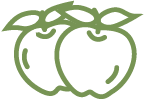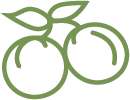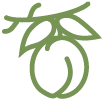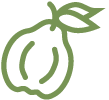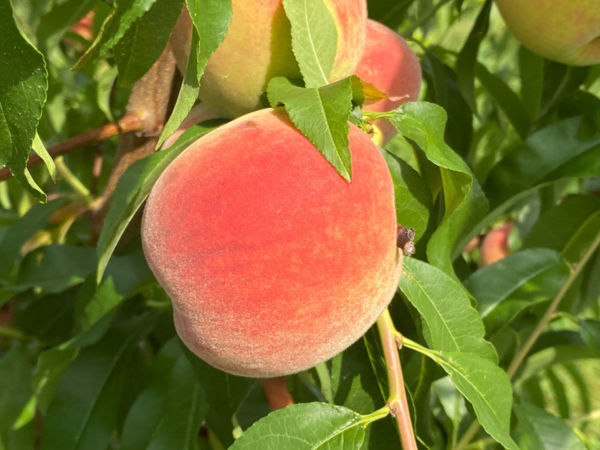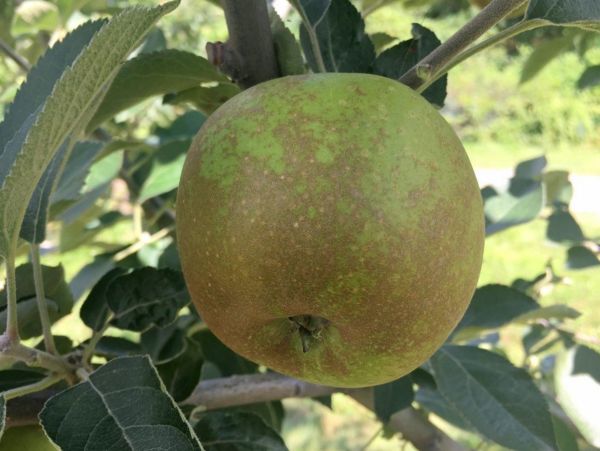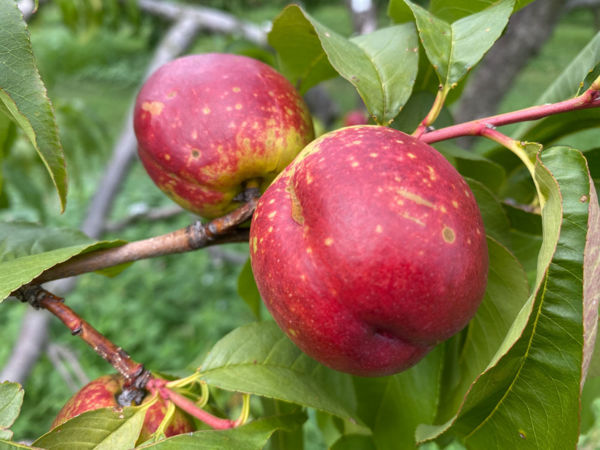An attractive, highly disease-resistant apple, ideal for organic growers.
Powdery Mildew
Fruits Affected
Apple, Peach, Plum, Pear, Nectarine, Cherry, Apricot
Also See
Fruit Tree Diseases and Pests: An IntroductionList of Common Fruit Tree Diseases and Pests
Powdery mildew is a disease that afflicts a wide range of trees, vegetables, and flowers, and is caused by several different fungi, Podosphaera leucotricha on apples, Podosphaera clandestina on cherry trees, Sphaerotheca pannosa on peaches.
Symptoms
White powder-like mold on leaves.
Organic Treatments
Sulfur is very effective against powdery mildew. Start spraying when the temperatures are over 55 degrees and stop if the temperature is over 85 degrees.
Conventional Treatments
Merivon, Inspire Super, and Sovran are all very effective. Combine with sulfur if the temperature is below 85 degrees. Mildew does not require moisture to remain active so continue coverage even if you are no longer spraying for scab.
Disease Cycle
Powdery mildew is a disease that afflicts a wide range of trees, vegetables, and flowers, and is caused by several different fungi, Podosphaera leucotricha on apples, Podosphaera clandestina on cherry trees, Sphaerotheca pannosa on peaches. The fungus survives over winter in vegetative or fruit buds that were infected the previous season, and it does not spread and develop significantly until temperatures are over 50°F. The spores on infected shoots are transferred by wind and insects to surrounding foliage. No rainfall is necessary for this disease to travel. In fact, although high humidity will hasten its spread, rainfall will inhibit powdery mildew.
New infections cause yellow spots on the surface of leaves, but the obvious, telltale sign of powdery mildew is white, powdery coating on the undersides. Eventually leaves will dry and wither, depriving the tree of nutrition. Infected terminal shoots will have a silvery-gray color and a stunted or deformed appearance. A heavily infected tree will even show signs on the fruit, a "net" of russet on the skin.
For further information, see Cornell's IPM Factsheet on Powdery Mildew and the Cornell Guide to Growing Fruit at Home.
Photo courtesy of Dr. David Rosenberger, Cornell University.
Featured Products
A few things we're loving right now...
A full-flavored, freestone white peach.
One of America's oldest apples, good for storage, baking, and cider.
A widely-grown, large, yellow-fleshed nectarine.

